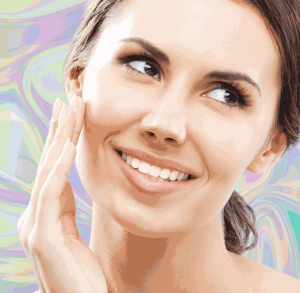In the beauty and skincare industry, there is an element that is beloved by all girls, and that is vitamin C.
Whitening, freckle removal, and skin beauty are all powerful effects of vitamin C.
1、The beauty benefits of vitamin C:
1) Antioxidant
When the skin is stimulated by sun exposure (ultraviolet radiation) or environmental pollutants, a large amount of free radicals are generated. The skin relies on a complex system of enzyme and non enzyme antioxidants to protect itself from free radical damage.
VC is the most abundant antioxidant in human skin, utilizing its highly oxidizable nature to replace other substances and protect them from oxidation. In other words, VC sacrifices itself to neutralize and eliminate free radicals, thereby protecting the skin.
2) Inhibit melanin production
VC and its derivatives can interfere with tyrosinase, reduce the conversion rate of tyrosinase, and decrease melanin production. In addition to inhibiting tyrosinase, VC can also act as a reducing agent for melanin and the intermediate product of melanin synthesis, dopaquinone, reducing black to colorless and achieving whitening effects. Vitamin C is a safe and effective skin whitening agent.
3) Skin sunscreen
VC participates in the synthesis of collagen and mucopolysaccharides, promotes wound healing, prevents sunburn, and avoids the sequelae left by excessive sunlight exposure. At the same time, vitamin C has excellent antioxidant properties and can capture and neutralize free radicals in the skin, preventing damage from ultraviolet rays. Therefore, vitamin C is called an “intradermal sunscreen”. Although it cannot absorb or block ultraviolet rays, it can produce a protective effect against ultraviolet damage in the dermis. The sun protection effect of adding VC is scientifically based~
4) Promote collagen synthesis
The loss of collagen and elastin can cause our skin to become less elastic and experience aging phenomena such as fine lines.
The main difference between collagen and regular protein is that it contains hydroxyproline and hydroxylysine. The synthesis of these two amino acids requires the involvement of vitamin C.
The hydroxylation of proline during the synthesis of collagen requires the participation of vitamin C, so vitamin C deficiency prevents the normal synthesis of collagen, leading to cellular connectivity disorders.
5) Repairing damaged barriers to promote wound healing
Vitamin C can promote the differentiation of keratinocytes, stimulate the epidermal barrier function, and help rebuild the epidermal layer. So vitamin C has a very positive effect on the skin barrier.
This is also why one of the symptoms of lacking this nutrient is poor wound healing.
6) Anti inflammatory
Vitamin C also has excellent antibacterial and anti-inflammatory effects, which can reduce the transcription factor activity of various inflammatory cytokines. Therefore, vitamin C is often used by dermatologists to treat inflammatory skin diseases such as acne.
2,What are the different types of vitamin C?
Pure vitamin C is called L-ascorbic acid (L-AA). This is the most biologically active and extensively studied form of vitamin C. However, this form rapidly oxidizes and becomes inactive under air, heat, light, or extreme pH conditions. Scientists stabilized L-AA by combining it with vitamin E and ferulic acid for use in cosmetics. There are many other formulas for vitamin C, including 3-0 ethyl ascorbic acid, ascorbate glucoside, magnesium and sodium ascorbate phosphate, tetrahexyl decanol ascorbate, ascorbate tetraisopropylpalmitate, and ascorbate palmitate. These derivatives are not pure vitamin C, but have been modified to enhance the stability and tolerance of ascorbic acid molecules. In terms of efficacy, many of these formulas have conflicting data or require further research to validate their effectiveness. L-ascorbic acid, tetrahexyl decanol ascorbate, and ascorbate tetraisopalmitate stabilized with vitamin E and ferulic acid have the most data supporting their use.
Post time: Nov-25-2024




